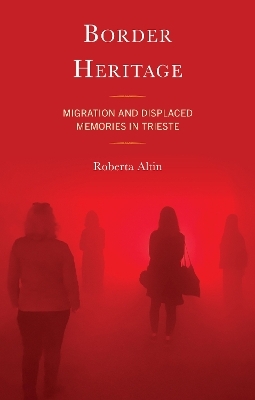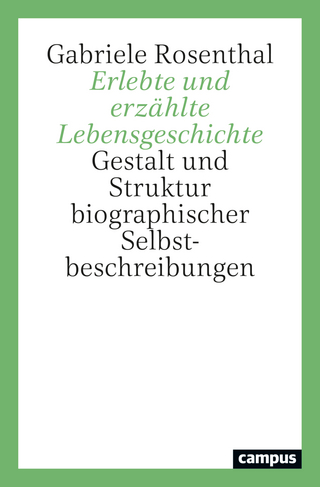
Border Heritage
Lexington Books/Fortress Academic (Verlag)
978-1-6669-4949-0 (ISBN)
Border Heritage opens new insights in migration studies through analysis of the same emblematic eastern-central European borderland in Trieste, crossed by four refugee migrations over 70 years of history (1945–2022). Born from a dual personal and professional perspective, the book’s original structure starts from the Ukrainian displacement, going back to the asylum seekers arriving via the Balkans, then to refugees from the former Yugoslavia, and the exodus from Istria after the Second World War; the second part focuses on places, objects, and displaced memories. Each chapter begins with a particularly significant account by a refugee, which anchors the argument in everyday life and gives a human dimension to the following conceptual developments. All but scattered, the narrative plot offers a cohesive thread through the various chapters, analyzing how the various migrations have stratified, overlapped, and contaminated each other.
Critically rethinking the heritage of a borderland means rethinking cognitive categories and being able to perceive the different nuances of those on the margins, without necessarily wanting to merge them into a generic “social inclusion” and instead giving them the right to a different voice. This book reverses the monochrome historical perspective to instead adopt the migrants’ perspective and make them the subject of study in a set of historical migrations.
Roberta Altin is associate professor of cultural anthropology in the Department of Humanities, University of Trieste.
Table of Contents
List of Figures
Acknowledgments
Introduction
Trieste, a Border Area
Chapter 1: Refugees Welcome, Preferably Women: Migrants from Ukraine (2022–)
Story of Tatiana
Open Borders
Gender Issues
True and Bogus Refugees
Migrant Women between East and West
Chapter 2: Game Over? Asylum Seekers via the Balkan Route (2015–)
Story of Abdul
Arriving in Europe
The Balkan Circuit and Network
Different Scales of Solidarity
Changes in “Borderism”
Minors, The Only Way In
Chapter 3: Yugoslavian Assemblage: Refugees from the Former Yugoslavia (1990s–early 2000s)
Story of Arbnore
The Fall of the Federal Republic of Yugoslavia
Grassroots Hospitality
Humanitarianism
Changing Regime
Old and New Europe-Bound Assemblages
Chapter 4: The “Exodus”. Displaced Italians from Istria and Dalmatia (1945–1965)
Story of Rita
New Borders and Refugee Relocation
From Exiles to Refugees
In-between Nostalg(Istr)ia
Chapter 5: Borderscape
Refugee Spaces
The Great Human Hub
The Silos and Other Past Refugee Centers
Then and Now: An (im)possible Comparison?
Public Spaces and Emplacement
Chapter 6: Abandoned Things
No Stuff, No Name
Warehouse 18, The Cemetery of Things
Border Archive
Chapter 7: Bordering to Remember: A Critical Approach
Resurfacing Memories
The Past is a Foreign Country
From a Displaced Memory to a Memory of Displacement
Memories United by Humanitarian Reason
Towards some Conclusions
Fuzzy Heritage
References
About the Author
| Erscheinungsdatum | 10.07.2024 |
|---|---|
| Reihe/Serie | Crossing Borders in a Global World: Applying Anthropology to Migration, Displacement, and Social Change |
| Sprache | englisch |
| Maße | 159 x 236 mm |
| Gewicht | 499 g |
| Themenwelt | Sozialwissenschaften ► Ethnologie |
| Sozialwissenschaften ► Soziologie ► Empirische Sozialforschung | |
| ISBN-10 | 1-6669-4949-3 / 1666949493 |
| ISBN-13 | 978-1-6669-4949-0 / 9781666949490 |
| Zustand | Neuware |
| Informationen gemäß Produktsicherheitsverordnung (GPSR) | |
| Haben Sie eine Frage zum Produkt? |
aus dem Bereich


